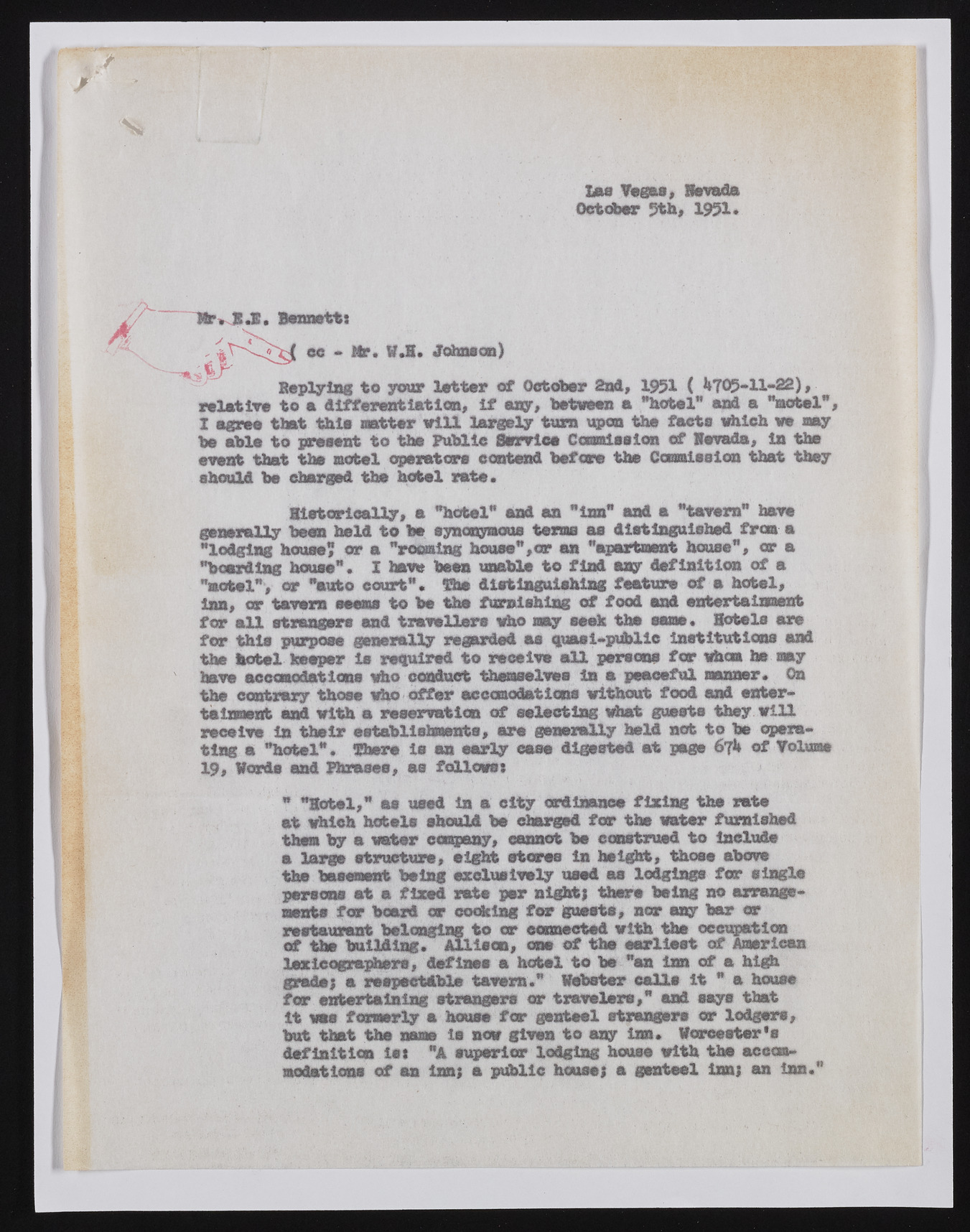Copyright & Fair-use Agreement
UNLV Special Collections provides copies of materials to facilitate private study, scholarship, or research. Material not in the public domain may be used according to fair use of copyrighted materials as defined by copyright law. Please cite us.
Please note that UNLV may not own the copyright to these materials and cannot provide permission to publish or distribute materials when UNLV is not the copyright holder. The user is solely responsible for determining the copyright status of materials and obtaining permission to use material from the copyright holder and for determining whether any permissions relating to any other rights are necessary for the intended use, and for obtaining all required permissions beyond that allowed by fair use.
Read more about our reproduction and use policy.
I agree.Information
Digital ID
Permalink
Details
Member of
More Info
Rights
Digital Provenance
Publisher
Transcription
Lea Vega.a, Nevada October 5th, 1951. Hr, B.B. Bennett: 1ec • Up, W.K. Johnson) ?g&j' Replying to your letter of October 2nd, 1951 ( ^705-11*22)» relative to a differentiation, if any# batmen a "hotel" and a "motel”, X agree that this natter will largely turn upon the facta which we nay be able to present to the Public Service Commission of Nevada, la the event that the motel operators contend before the Coamlesion that they should be charged the hotel rate. Historically, a "hotel” and an "inn" and a "tavern" have generally been held to be synonymous terms aa distinguished from a "lodging house” or a "rooming house",or an "apartment house”, or a "boarding house". X have been unable to find any definition of a "motel", or "auto court". The distinguishing feature of a hotel# inn, or tavern seems to be the furnishing of food and entertainment for all strangers and trevellers who any seek the same. Hotels are for this purpose generally regarded as quasi-public institutions and the hotel keeper is required to receive all persons for whom he may have accomodations who conduct themselves in a peaceful manner. On the contrary those who offer accomodations without food and entertainment and with a reservation of selecting what guests they will receive in their establishments, are generally held net to be operating a "hotel". There is an early ease digested at page of Yoluas 19, Words and Phrases, as fallows: ” "Hotel," as used in a city ordinance fixing the rate at which hotels should be charged far the water furnished them by a water company, cannot be construed to include a large structure, eight stores in height, those above the basement being exclusively used as lodgings for single persons at a fixed rate per night) there being no arrangemente for board or cooking for guests, nor any bar or restaurant belonging to or connected with the occupation of the building. All is on, one of the earliest of American lexicographers, defines a hotel to be "an inn of a high grade) a respectable tavern." Webster calls it " a house for entertaining strangers or travelers," end says that it was formerly a house for genteel strangers or lodgers, but that the name is now given to any inn. Worcester's definition 1st "A superior lodging home with the accommodations of an lut) a public house) a genteel inmj an inn."

